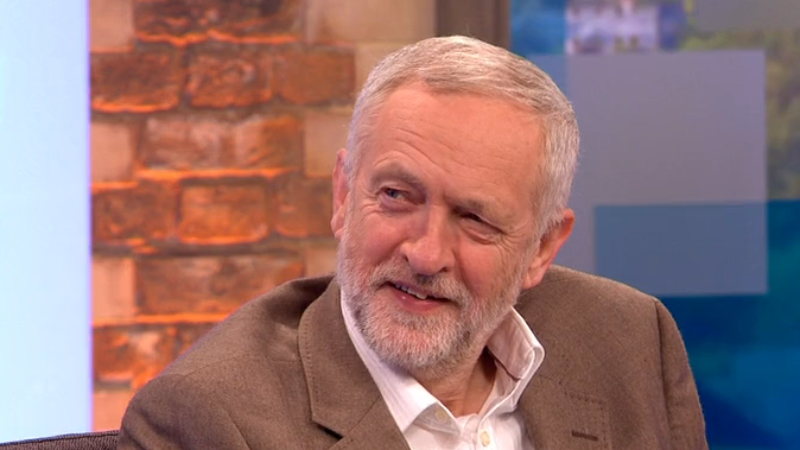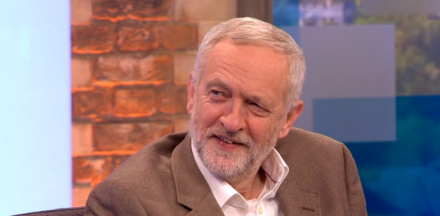

Jeremy Corbyn is set to win the Labour leadership contest – again. And we need to analyse why Corbyn won last summer and why he looks on track to win again. If the latest YouGov poll is anything to go by, a majority of Labour members and supporters are coming out to support Corbyn. But instead of trying to make sense of why this is the case, commentators and politicians dismiss them as Trotskyists (which is as simplistic as calling all anti-Corbynists as Tories or Blairites) or accuse them of not caring about winning elections.
The reality is far less scandalous. Most of them know Labour won’t become electable by triangulating or adopting conservative rhetoric. Social democratic parties are floundering across Europe – many believe the party needs to drag the political debate leftwards. Corbyn symbolises the desire for that change. Despite what the Corbynista tag suggests, this isn’t just about him. As the left’s victory in the NEC election shows, people know the party needs to change.
Corbyn’s popularity is a product of Labour’s past. Many members and supporters grew unhappy with the party in the New Labour years because they watched as it accepted conservative rhetoric and policies. Amid the positives that had an impact on many, the truly transformative Labour government that left-wingers in the party had hoped for didn’t come to pass. Blair presided over a greater shift to top down politics; the disastrous war in Iraq, which exemplified a wrong-headed approach to foreign policy; the private finance initiative and the marketisation of higher education.
In these thirteen years, some stopped supporting the party altogether. Others begrudgingly held on to their membership cards and continued to voice their discontent with the party’s failing.
At the last general election Labour’s offer was characterised by timidity and confusion. Influenced by the year’s prior, Ed Miliband and his team cravenly accepted Tory framing on key issues like austerity and immigration. “Austerity is a necessity, just not in this form”, frontbenchers claimed; immigration is good but we need to “control it”, the infamous mugs reminded us. Labour pandered to what they believed to be popular opinion, this made them look weak and untrustworthy. Miliband’s muddled messages, paired with years of abandonment, led many so-called traditional Labour voters to move elsewhere – including to UKIP.
Corbyn and his politics represent a break with this past. He has flaws and bad polling, which many of his supporters recognise, as evidenced by a recent YouGov poll. But his potential challengers stand no better chance of winning – last year the leadership contenders had a dearth of ideas (apart from Liz Kendall, whose policies were resoundingly rejected) and represented so many of the party’s past problems: they refused to challenge the status quo where it was needed. This year, some think Owen Smith as untrustworthy with an ill-advised approach to the EU.
The coup against Corbyn looks like it’s going to fail. But Labour members and supporters aren’t just rejecting it because of the Labour leader. Although there are many fair-minded, worried MPs involved in the coup, the attempt to overthrow Corbyn directly questions and tries to undermine member’s right to engage in and with the party. Why else would some in Labour try so hard to disenfranchise new members in the leadership contest? It smacks of an elitist, top down approach to politics – the kind which has lost Labour support in the past.
It certainly doesn’t help that many feel Corbyn hasn’t had a fair go at the leadership. Amid the errors he has made, certain Labour MPs (by no means all) have been primed to oust him from the offset, briefing the media against him as they go.
The people who are supporting Jeremy Corbyn aren’t rabid left-wingers living in a fantasyland, most are just unhappy with the state of our current politics that keeps sliding further to the right. And they realise that with the rising tide of xenophobia across Europe and climbing levels of inequality at home, timidly making minor alterations to conservative framing won’t do. To many supporters, Corbyn symbolises a shift that the Labour party and the country desperately need.




More from LabourList
‘Factionalism at the top Is weakening Labour – and handing a gift to Reform’
‘Europe must stand strong on its own as US security guarantees grow conditional’
‘Tackling poverty should be the legacy of Keir Starmer’s government’